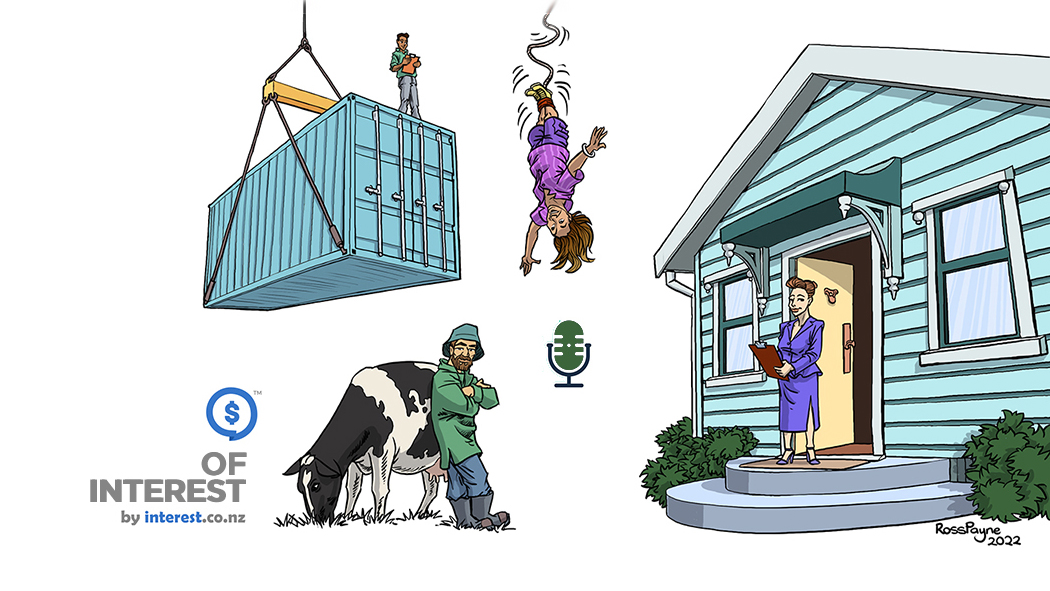
The Reserve Bank surprised the market on Wednesday by dropping hints it was open to cutting rates sooner than planned, due to signs the economy was getting too weak.
While the tone shift was unexpected, the central bank was reacting to the same data which had caused ASB’s economics team to change their own interest rate forecast the week prior.
Nick Tuffley, the retail bank’s chief economist, said economic data was sending very different signals in July than it had been prior to the RBNZ’s meeting in May.
Monetary policymakers had then been facing consecutive inflation data releases which showed domestic pressure tracking well above forecasts, he said.
“When we roll forward to where we are now, it's just clear that the economy is performing weaker than what they had been anticipating [in May]. We are now forecasting another mild double dip recession; that may not occur but it just highlights how weak things look”.
The RBNZ had been forecasting slight economic growth from here, picking up momentum in each subsequent quarter, but fresh forecasts look like there will be further contractions.
Tuffley told the Of Interest podcast that the Monetary Policy Committee would have been looking at new forecasts, even though they don’t get released to the public.
“When the Reserve Bank does these monetary policy reviews, it will have re-cranked its forecasts again and will be working on an updated view,” he said.
“Undoubtedly, what that view is showing is that GDP is going to be much weaker over the course of this year than they anticipated”.
This would likely mean higher unemployment, slower wage growth, and disinflation happening faster than forecast as well. Tuffley expects annual inflation was 3.3% in June.
“The other thing we are mindful of is that [monetary policy] is like an oil tanker going at full speed, when you put it in reverse you don’t see much impact on momentum for a while”.
For a long time, the Reserve Bank has been most worried about cutting rates too soon and leaving the embers of inflation smoldering, ready to bust back into flames.
Now the central bank was becoming very confident inflation was coming under control and was shifting focus to the risk that interest rates are damaging the economy unnecessarily.
Since the Coalition Government removed RBNZ’s employment mandate, the policymakers are nominally not required to consider economic damage in their decisions.
However, inflation may drop below 2% if they allow the economy to become too weak and the committee is tasked with avoiding “unnecessary volatility” in output and employment.
Tuffley expects the Official Cash Rate to be cut in November, while the RBNZ most recently suggested it was planning to hold off until next August — although that is likely to change.
Bond traders and other financial market participants have priced in a decent change of a rate cut at the RBNZ’s next meeting this August, and possibly a 50 basis point cut in November.
Tuffley said this sort of gap between the central bank and the market was fairly common.
“Markets tend to forecast rate cuts tomorrow, whilst the Reserve Bank might be looking at next year, and often you end up meeting a bit in the middle,” he said.
*You can find all episodes of the Of Interest podcast here.

3 Comments
The reserve bank seems to want to wait and act on information that the economy tanked a few months in the past, ignoring the here and now.
As a matter of interest, where do you think prices - of everything - are going to go when DJT gets elected, as he seems certain to now after today's events, and unleashes a flood of new Debt onto the world stage, in the same vein as the Covid cash? In fact, The USA won't be alone in that regard, as France will probably do the same now and unsettle whatever consensus the EU had. And those two won't be on their own.
I guess we'll have to wait until November (and why the RBNZ is keeping its power dry?) to find out. But if those suggested plans are put into action, my long held view that an OCR of 8.25% is on the cards, might be looked at fondly in the rear vision mirror, as being naively low....
Is it true that the Government wants to ramp up the economy and at the same time the Reserve Bank wants to crash the economy? Looks like they are going in opposite directions. Very confusing to simple country boy like me.

We welcome your comments below. If you are not already registered, please register to comment
Remember we welcome robust, respectful and insightful debate. We don't welcome abusive or defamatory comments and will de-register those repeatedly making such comments. Our current comment policy is here.